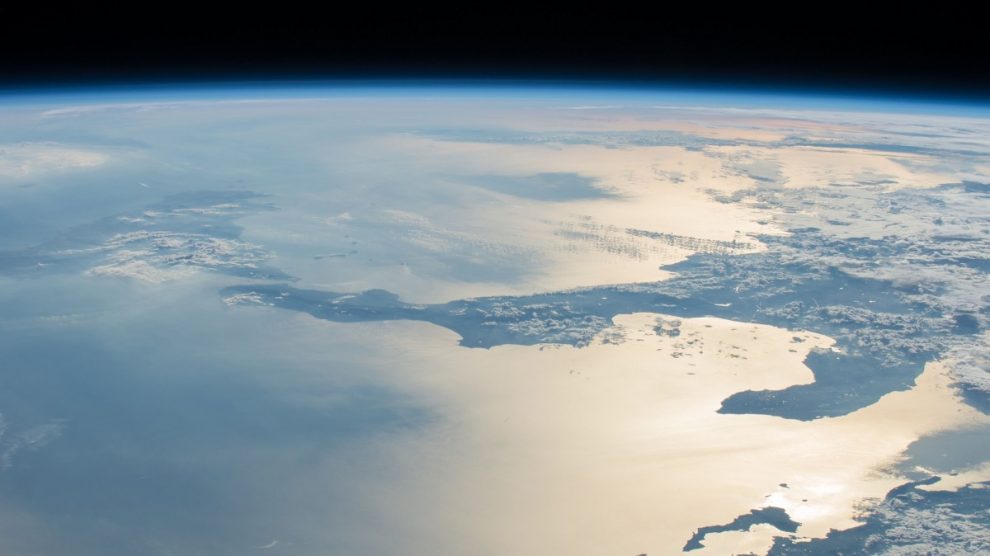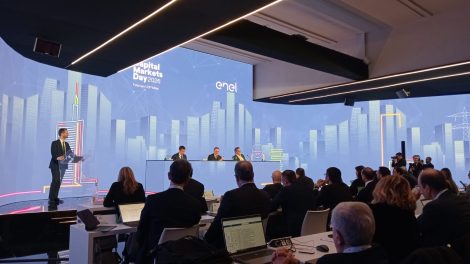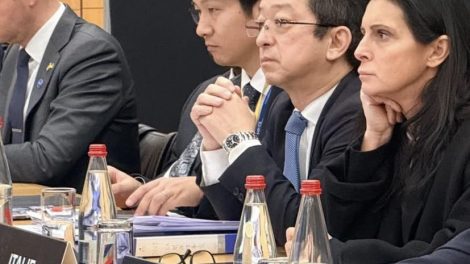Decoding the news. Climate change is now a recognised threat multiplier.
- Floods, wildfires, droughts, rising sea levels and extreme heatwaves disrupt economies, infrastructure, and political stability.
- The crisis demands a coordinated, multidimensional response.
The event. On Monday, Med-Or Italian Foundation presented its latest Quaderno, “Climate Change and Security: A Global Challenge.”
- Moderated by Med-Or director of communications Enrico Casini, the event featured diplomat Giampaolo Cutillo, professor Carlo Doglioni, Italy’s National Research Council’s Sandro Carniel, Leonardo’s chief sustainability officer Raffaella Luglini, Enel Foundation managing editor Giulia Genuardi, SNAM executive director for institutional affairs Cecilia Gatti.
Gradients and geopolitical risk. The report emphasises how natural gradients—temperature, pressure, and atmospheric composition—reshape human systems.
- CO₂ levels are at an 800,000-year high, accelerating global warming and increasing the intensity of extreme weather.
- Arctic anomalies are of particular concern. Melting ice could raise Atlantic sea levels by up to six meters, with massive consequences for the Mediterranean.
- The shift affects submarine navigation and opens new maritime routes in the North, raising urgent questions about sovereignty, governance, and military balance.
Climate adaptation as a strategic necessity. The Italian industry is increasingly factoring climate risk into long-term planning and adopting a strategy of integrated resilience through innovation.
- Companies like Leonardo are moving from mitigation to adaptation, leveraging AI, digitisation, and data to boost operational resilience.
- Enel reports over 400 extreme rain events in Italy in 2024, threatening infrastructure and communities.
- SNAM sees the transition as both a necessity and a geopolitical tool.
Climate diplomacy and pragmatic multilateralism. Climate security is now embedded in Italy’s foreign policy.
- Energy has become a geopolitical asset post-pandemic and post-Ukraine invasion.
- Rome’s quick response relied on industrial flexibility, international partnerships, and geographic leverage.
- Through investments in southern Mediterranean infrastructure—like green hydrogen under the Mattei Plan—Italy is balancing decarbonisation with energy security in a volatile context.
Med-Or’s approach—bridging institutions, research, and business—offers a framework for understanding and responding to the climate-security nexus.
- The goal is to align economic competitiveness with climate goals and their effects on the security environment through multilateral engagement and long-term planning.





